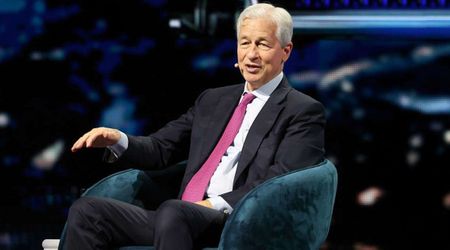Apple Reportedly Shelves Decade-Long Electric Vehicle Project, Shifts Focus to AI Initiatives

Apple Inc. has reportedly canceled its plan to build electric vehicles (EVs), a project that the company had been working on for over a decade. The tech giant internally disclosed this decision on Tuesday, leaving over 2,000 project employees surprised. Now, hundreds of them are seeking internal roles, and those unable to secure positions face potential layoffs.
Three teams, including a software team led by executive Dan Dodge in Ottawa, a cloud engineering and software group overseen by Libo Meyers, and a software project management team led by Vera Carr, will move to Craig Federighi's software department to focus on Apple's core operating systems.
"If it is true, Apple will put more focus on GenAI, and that should give investors more optimism about the company's efforts and ability to compete at a platform level on AI," said Ben Bajarin, chief executive of consulting firm Creative Strategies.
Chief Operating Officer Jeff Williams and Kevin Lynch, a vice president overseeing the project, reportedly announced the decision. Many affected employees have since been transferred to the company's artificial intelligence division.
The project, initiated in 2014, once targeted a vehicle release between 2024 and 2025. However, progress was inconsistent, leading to the layoff of 190 workers from the group in 2019.
View this post on Instagram
The decision to scrap the electric vehicle (EV) project by Apple came after extensive deliberations between top executives and the company's board. Investors and analysts responded positively to the company's move, commending the tech giant for avoiding the increasingly risky electric vehicle market.
Bloomberg intelligence analysts Anyrag Rana and Andrew Girard supported this decision, emphasizing the greater long-term profitability potential of AI revenue streams compared to automotive ventures. "Shifting resources toward generative AI is the right call given the long-term profitability potential of AI revenue streams versus cars," they said.
Apple has canceled its plans to release an electric car with self-driving abilities, a secretive product that had been in the works for nearly a decade. The car, which it spent billions of dollars researching, had been intended as a rival to Tesla’s EVs. https://t.co/YMQVs6IXd3
— The New York Times (@nytimes) February 27, 2024
Apple's ambitious decade-long car effort, known as Project Titan, aimed to develop an artificial intelligence system capable of powering fully autonomous vehicles. Ian Goodfellow, a prominent scientist who led the machine-learning division within Project Titan, left Apple in 2022.
Originally, the company's self-driving car aimed to set itself apart from competitors like Google-backed Waymo and General Motors' Cruise by featuring no steering wheel or pedals, with interiors optimized for hands-free driving. However, faced with challenges along the way, Apple revised its ambitious plans, eventually incorporating a steering wheel and pedals and delaying the launch from 2025 to 2026, while still expected to carry a hefty $100,000 price tag.
In contrast, Apple unveiled its highly anticipated Vision Pro earlier this month at a staggering price of $3,500. However, reports emerged of customers returning the virtual reality headset mere weeks after purchase. Despite selling over 200,000 pairs during pre-orders, upon its public release on Feb. 2, the Vision Pro faced mixed reviews.
- Apple is expected to introduce advanced AI features in iOS 18, as suggested by iOS 17.4 beta code.
— Ben Tossell (@bentossell) January 27, 2024
- The code reveals a new SiriSummarization framework that uses OpenAI's ChatGPT API for internal testing of AI models.
- iOS 17.4 includes system prompts for summarization and…
Now, with the focus away from the automotive sector, the company is doubling down on AI initiatives. Initial AI features are slated for inclusion in iOS 18, expected to launch around September alongside the next generation of iPhones.
Apple's commitment to AI is seen in its significant uptick in startup acquisitions related to this field, with reports suggesting the acquisition of up to 32 AI companies in the previous year.






















